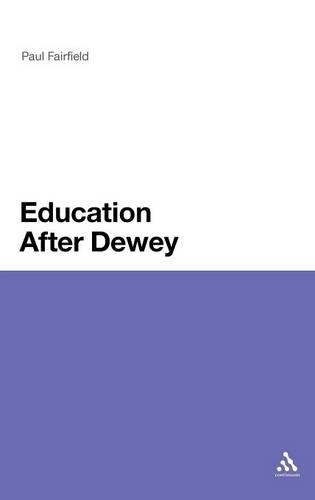
Education After Dewey
(Hardback)
Publishing Details
Education After Dewey
By (Author) Professor Paul Fairfield
Continuum Publishing Corporation
Continuum Publishing Corporation
12th October 2009
United States
Classifications
Tertiary Education
Non Fiction
370.1
Physical Properties
Hardback
320
Width 156mm, Height 234mm
Description
Do Martin Heidegger's statements on the nature of thinking compel a re-examination of Dewey's view Does Hans-Georg Gadamer's philosophy of experience advance beyond Dewey's experimental model How does a Deweyan view of moral or political education look in light of Hannah Arendt's theory of judgment, or Paulo Freire's theory of dialogical education Part One of this study looks at Dewey's conceptions of experience and thinking in connection with two of the most important figures in twentieth-century phenomenology and hermeneutics: Heidegger and Gadamer. It also returns to an old distinction in the philosophy of education between progressivism and conservatism, in order to situate and clarify Dewey's position and to frame the argument of this book. Part Two applies this principled framework to the teaching of several disciplines of the human sciences: philosophy, religion, ethics, politics, history and literature. These are discussed with reference to the writings of Friedrich Nietzsche, John Caputo, Hannah Arendt, Paulo Freire, Michel Foucault, and Paul Ricoeur.
Reviews
'Fairfield offers a veritable feast of fresh insights into the relations between Dewey's educational philosophy and the work of the major figures of the continental tradition, and his chapters on the hot-button issues of ethics, religion, and politics in the classroom provide much needed guidance to teachers at every academic level.' Larry A. Hickman, Director of the Center for Dewey Studies and Professor of Philosophy, Southern Illinois University Carbondale, USA
John Dewey is one of the most controversial educational thinkers of the last century. Some have believed that his philosophy, with its emphasis upon the gradual transformation of the child's experience, is central to the reform of education for everyone. Others claim that his so-called child-centred education has been the cause of all our problems. But few have read him and most have misunderstood him. This book takes up the message of the real Dewey in going "beyond progressivism and conservativism". In so doing, it takes up some of the main themes of Dewey's philosophy and, in a similar vein, transcends the dualism which bedevils educational thinking and policy. It is a most important contribution to the growing interest in what Dewey really argued.' Richard Pring, Lead Director of the Nuffield Review 14-19 Education andTraining, UK, and Professor of Education,Department of Education, University of Oxford, UK
Author Bio
Paul Fairfield is Professor in the Department of Philosophy at Queen's University, Canada.
